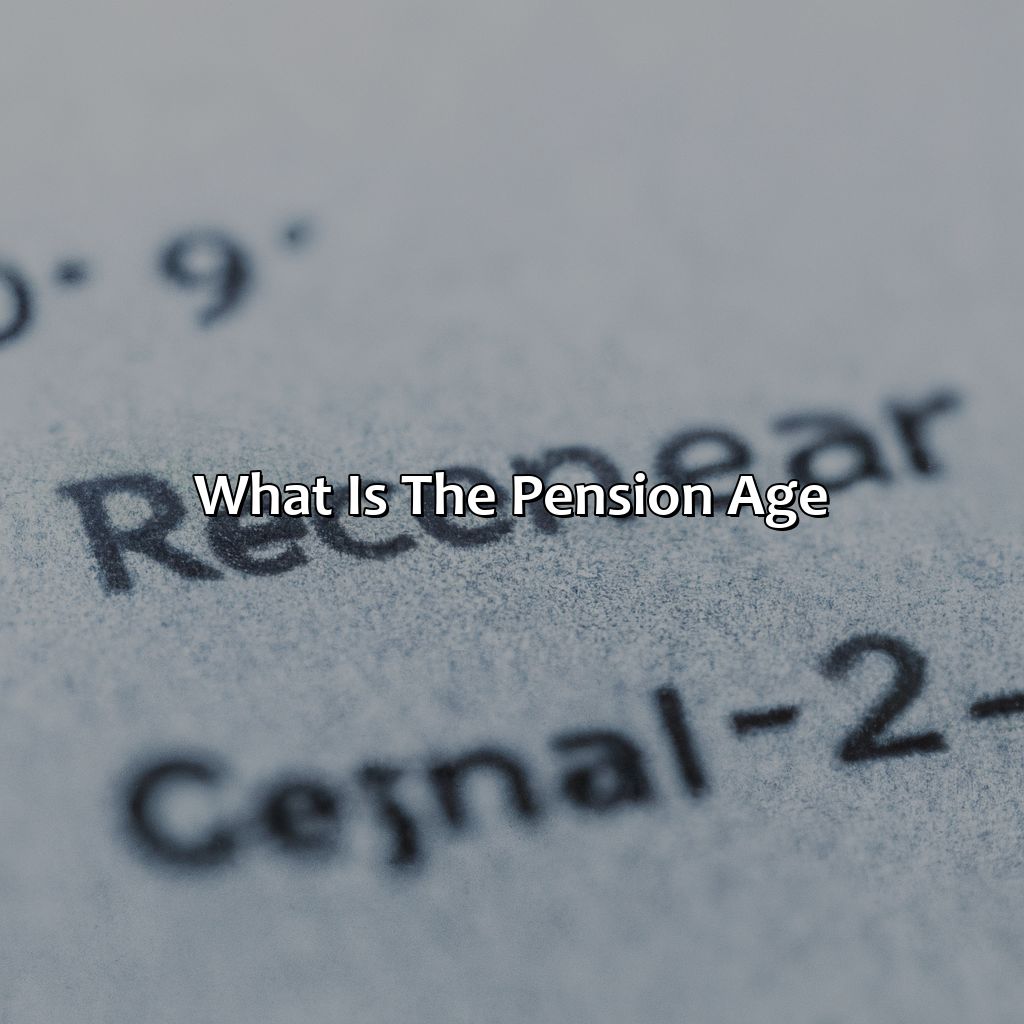What Is The Pension Age?
Key Takeaway:
- The pension age refers to the age at which an individual can start receiving pension benefits, which typically provide financial support during retirement.
- Understanding the pension age and its significance is important as it helps in planning for retirement and ensuring financial security in old age.
- Factors affecting pension age include legal retirement age, company policy, and personal considerations. It is crucial to take these into account when planning for retirement and deciding on appropriate savings and investment strategies.
Do you worry about your retirement? Knowing the pension age is crucial to ensure you have the financial security you need in your later years. You deserve to understand what your options are and how to save for your retirement. This article will explain the pension age and how it affects you.
What is the pension age?
The age of pension refers to the minimum age requirement for an individual to access a retirement plan or receive government-funded retirement benefits. This criterion varies across countries and is often influenced by factors such as life expectancy, economic conditions, and social policy. Pension age is a critical aspect of retirement planning and requires careful consideration to ensure financial security in old age.
There are different types of retirement plans available in different countries, some of which have specific age requirements. In the United States, for example, the minimum age to access social security retirement benefits is 62 years. However, delayed benefits are available for those who wait until 70, leading to higher payouts. In the United Kingdom, the pension age is gradually increasing and is now 66 years, with a further increase planned for the future.
The pension age has evolved over time, reflecting changing societal norms and economic realities. In the past, retirement was often associated with a fixed age of 65, which was considered the end of working life. However, with increasing life expectancy and a need to maintain a skilled workforce for longer, retirement age has been pushed back in many countries.
Interestingly, the idea of retirement as a concept is relatively new, dating back only to the late 19th century. Prior to this, older individuals were not given any special consideration when it came to work and were often required to continue working to support themselves. It was not until Social Security was introduced in the United States in the 1930s that retirement became a formalized aspect of American life.
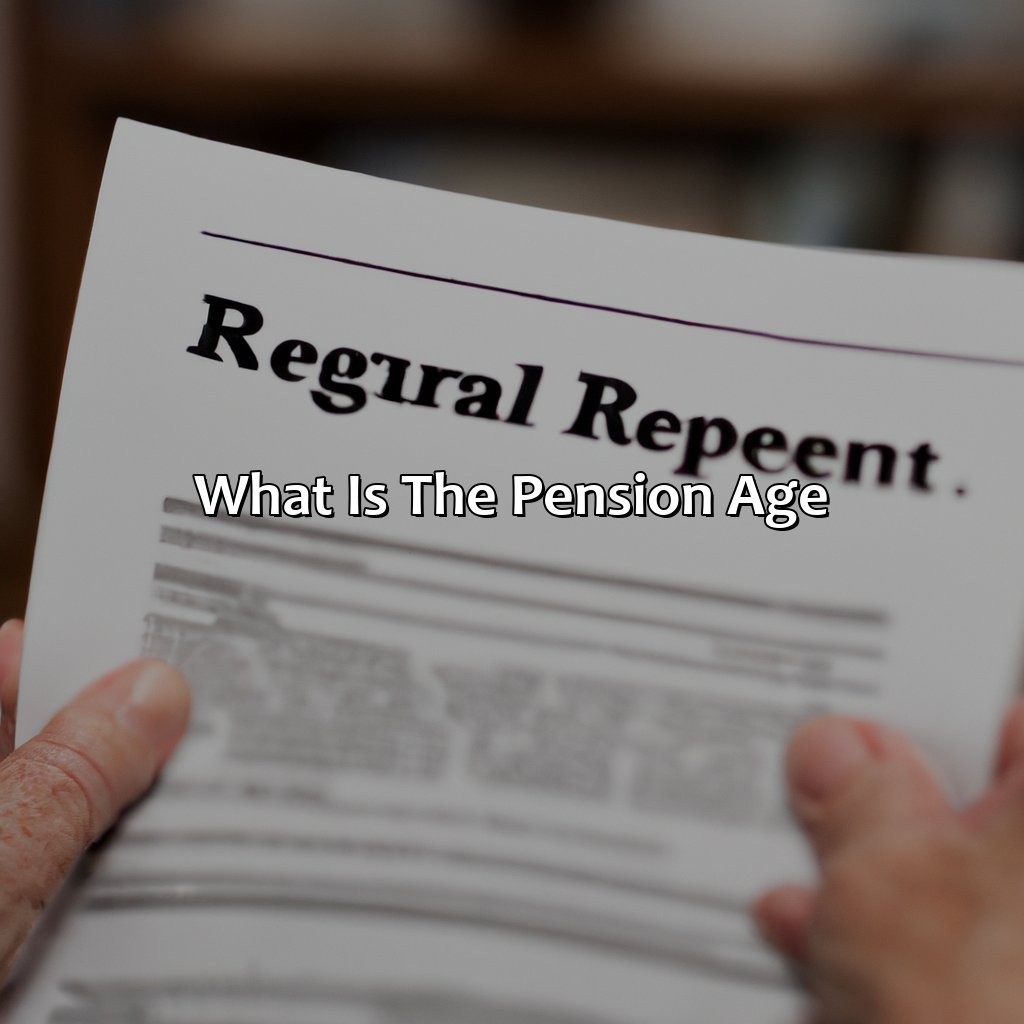
Image credits: retiregenz.com by David Woodhock
Definition and Importance of the Pension Age
The Pension Age refers to the age at which a person is eligible to receive retirement benefits. It is an essential aspect of one’s financial planning, as it determines the amount and timing of pension payments. Pension Age varies from country to country, and it is affected by factors such as life expectancy, economic conditions, and government policies. It is crucial to start planning for retirement early and to understand the Pension Age to ensure a comfortable post-retirement life.
Knowing your Pension Age is vital, as it enables you to plan your retirement and make informed decisions about your finances. You can choose to retire early, delay retirement, or work past your average pension age, depending on your financial situation. Additionally, understanding the Pension Age allows you to prepare for unexpected life events that may impact your retirement plans, such as illness or job loss.
To ensure that you are well-informed about the Pension Age, it is essential to do your research and seek professional advice. There are various retirement planning options available, such as personal savings, pension schemes, and government benefits. Understanding the Pension Age and your retirement planning options can help you make the most of your retirement years and ensure financial security.
Pro Tip: Start planning for retirement early and seek professional advice to better understand your Pension Age and the available retirement options.
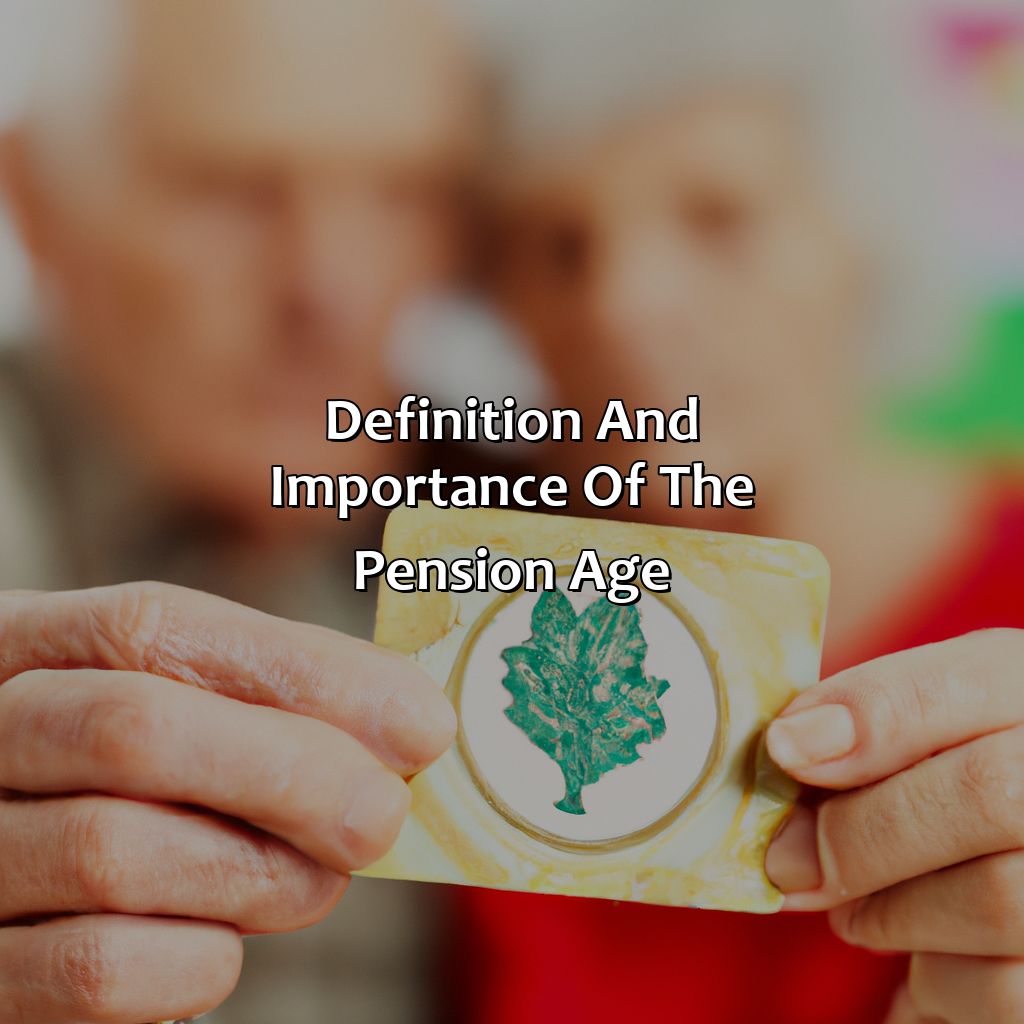
Image credits: retiregenz.com by Yuval Washington
Factors Affecting Pension Age
To comprehend the aspects influencing pension age, you should ponder legal retirement age, business regulations and personal factors.
Legal retirement age may fluctuate based on your nation. How long a pension lasts can also be affected by business regulations.
Health and financial needs are personal considerations that may influence your choice to retire.
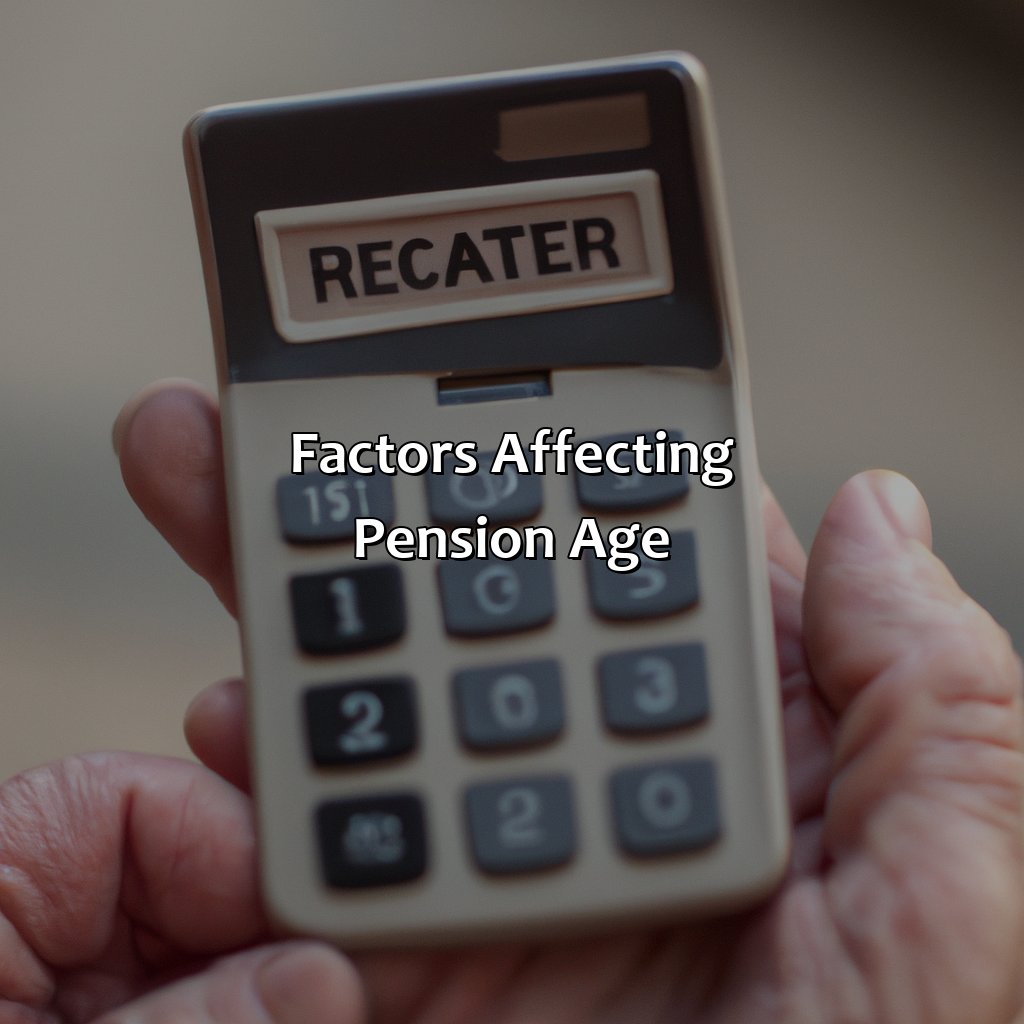
Image credits: retiregenz.com by David Woodhock
Legal Retirement Age
Retirement Age is the legal age an employee can withdraw from active work and access their pension benefits. It is determined by factors such as country, profession, type of employment, and changes in government policies. These factors cause variations in retirement ages between countries and professions. Retirement age has changed over time due to societal changes that affect the workforce.
Employment status also affects retirement age where employers may decide on early retirement based on age, performance or years of service. Companies may also offer incentives to retain older workers who have exceeded the legal age limit for retirement. To learn more about maximum pension limit, visit our website.
In some cases, employees under mandatory employment contracts are required to retire after attaining a certain age limit; this guarantees them some form of social security income post-retirement. If you’re wondering how much SSS pension you will get, it’s important to check with your employer and the Social Security System to understand the specific policies and calculations.
To enjoy pension benefits at the right time, planning ahead by making investments or saving up early is important. This ensures that individuals have enough funds saved up to guarantee their financial independence even after retirement. For example, if you are a nurse, it’s important to know what is the average pension for a nurse in order to plan your retirement accordingly.
Working for this company is like being on a hamster wheel, except instead of exercise, you just get a delayed retirement.
Company Policy
The guidelines set by a corporation concerning retirement benefits is a crucial factor for employees. These policies outline if there are any perks attached to longer tenures and the age at which pension rights apply. Organisations with flexible pension policies appeal to top talent, enhancing recruitment prospects.
It’s worth investigating the robustness of the company policy that an employee seeks to join since it can have a significant impact on their finances in later years. Companies are obligated to provide beneficial benefits, but low-quality schemes may result in lower pay upon retirement. A well-planned scheme might involve contributions from both employer and employee.
Pensions play a significant role in determining people s income during old age; therefore, employers should be mindful of providing high-quality plans comparable to current market standards. According to Forbes magazine, “many Americans struggle with financial insecurity regardless of employment status.”
Recent studies indicate that corporations with non-discriminatory policies have improved engagement and commitment amongst employees, which positively impacts productivity levels.
Retirement: When you stop living at work and start working at living… until your personal considerations kick in.
Personal Considerations
When it comes to determining the retirement age, there are many personal factors to consider. These may include one’s financial status, lifestyle preferences, health condition and family circumstances. It is essential to assess these considerations carefully before making any decisions.
Some people prefer to retire early and enjoy their leisure time while they are still healthy enough to do so. Others may choose to work longer to ensure a more comfortable retirement financially. Health status and work-related stress levels may also influence one’s retirement plans.
Family responsibilities such as caring for dependent children or aging parents may also affect the decision about when to retire. Careful planning is crucial, taking into account all personal and financial situations.
It is important to note that pension age varies according to country and legislation. For example, in the UK, state pension age used to be 60 for women and 65 for men; nevertheless, it has gradually risen since April 2010 under Pensions Act 2007.
According to a report by the World Economic Forum, effective retirement planning that takes into account these personal considerations should begin as early in an individual’s career as possible. This ensures that one can maximize working years while minimizing stress over life after retirement.
How do you know if you’ve reached retirement age? When you start getting excited about receiving newsletters from AARP.
Changes in Pension Age
To comprehend the pension age, you must understand its historical trends. Plus, recognize the present and future alterations. That way, you’ll have a total grasp of the pension age and be capable of making educated decisions about it.
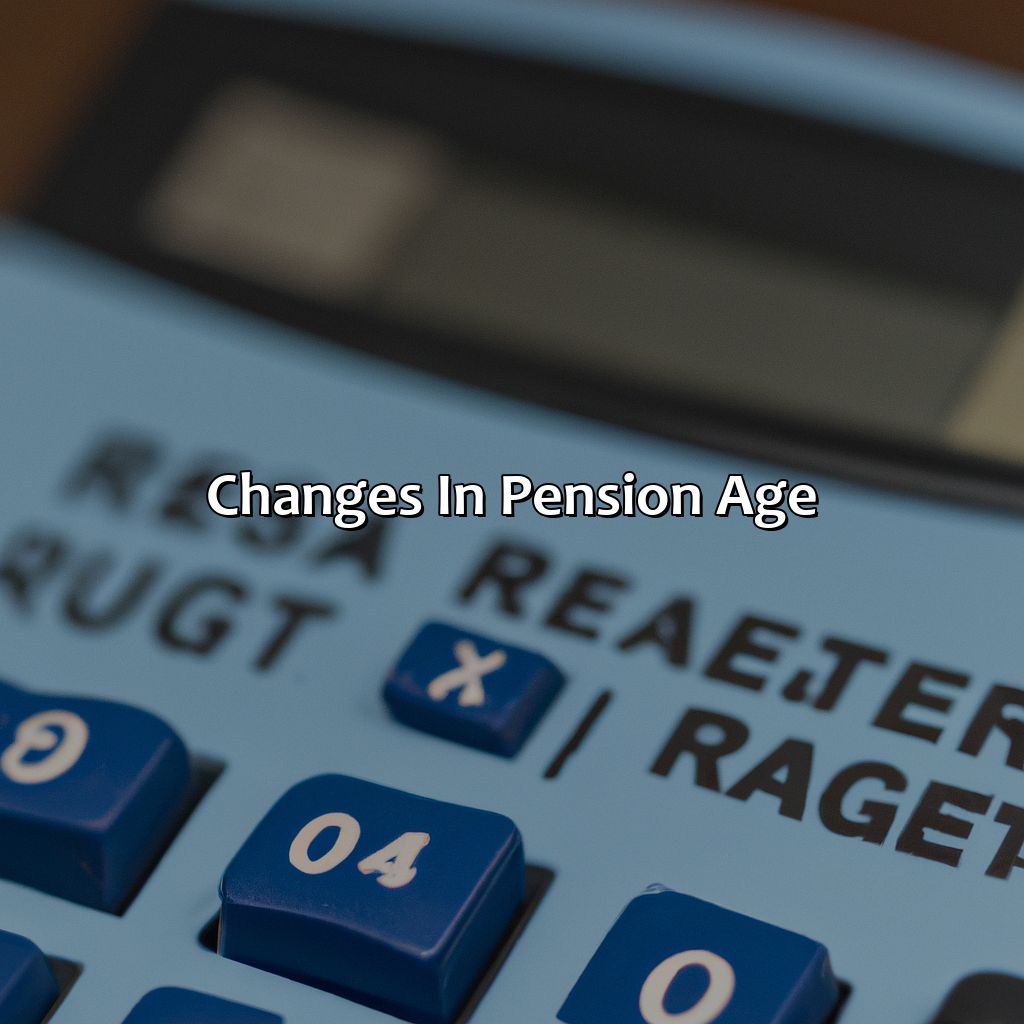
Image credits: retiregenz.com by Joel Duncun
Historical Trends in Pension Age
The evolution of retirement age through time is a significant topic that is worthy of exploration. The modified applicable age for pension benefits has been an ongoing process over the years, and it varies from one country to another and across genders.
| Country | Pension Age (Male) | Pension Age (Female) |
|---|---|---|
| United States | 65 | 65 |
| United Kingdom | 67 | 67 |
| Germany | 67 | 67 |
There are several factors causing changes in pension-age globally, such as life expectancy growth, ageing population, financial strain on national public pension programs henceforth pension system s financial sustainability. Furthermore, higher employment rates among senior citizens stimulate discussions about raising the pensionable age limit.
It’s imperative to stay informed about changes to avoid missing out on retirement benefits. By regularly keeping up with modifications announced for retirement plans within your country of residence or employment minimum requirements, people can guarantee they meet all qualifications to access their Retirement benefits by Default. Looks like we’ll have to work until we’re old and grey, but at least that means we won’t have to dye our hair anymore.
Current and Future Changes in Pension Age
The evolving nature of retirement benefits has sparked some fundamental changes in the principle of pension age. What is pension age? Pension age refers to the minimum age for receiving retirement and other social security benefits. The variations in pension ages are correlated to economic and social factors such as life expectancy, demographic shifts, state liabilities, welfare budgets and labor market participation. Changes in pension age have prompted significant debate among policymakers worldwide.
Pension ages are not uniform across countries. Some countries have fixed retirement ages while others have flexible or floating ones that depend on annual income levels or specific job roles. Recently, many European governments shifted their pension age upwards to combat rising health costs, increase retiree participation in creating economic value and sustain ageing populations. These alterations aim to create an intergenerational balance between a country’s workforce and its retired population.
Compared with other states like France or Italy, the UK has undergone significant changes in its pension age system since 2010. However, some people still fall through the cracks when it comes to national retirement schemes. One example is a couple who retired before 6 April 2016 but before the state pension inauguration lost out on a triple lock guarantee worth over 30k over five years after reaching state pension age.
The evolution of pension policies requires vigilance towards how they will impact society’s wellbeing long-term. Expanding public understanding of pension ages can help employees better prepare for retirement and address socio-economic distributional biases across different demographic groups.
A friend of mine found out he would not receive his workplace’s final salary scheme during retirement but instead get the lesser career average scheme benefit after 15 years of diligent service.
Retirement planning is like a game of chess, except the queen is your pension and the king is your social security number.
Planning for Retirement
For a safe retirement, effective strategies are needed. Start with the ‘Planning for Retirement’ section. ‘Savings and Investment Strategies, Pension Plans and Social Security‘ sub-sections can help. These will provide solutions. They will guarantee a secure future with financial stability.

Image credits: retiregenz.com by Joel Duncun
Savings and Investment Strategies
Savings and Investment Tactics for Retirement Planning
To ensure a financially stable future, having an efficient savings and investment plan is essential. Here are some strategies to consider:
- Start Early: Begin saving as soon as possible to maximize your retirement funds over time.
- Diversify Portfolio: Invest in a variety of assets to mitigate risks and optimize returns.
- Consider Tax Implications: Know the tax implications of different investment options to avoid unnecessary deductions.
- Regularly Review and Adjust Plan: Keep track of your portfolio and make smart adjustments based on market fluctuations, retirement goals, and personal circumstances.
- Manage Debt: Reduce debt as early as possible to have more disposable income available for saving and investing in the long run.
- Consult with Experts: Consult with financial advisors or retirement planners to create an individualized plan suited for your specific needs and goals.
It’s important to note that every individual’s financial situation is unique, so customizing a savings plan specifically for one’s own circumstances is crucial.
Pro Tip: Start saving early! The sooner you begin contributing to retirement accounts, the more time your money has to grow.
Pension plans are like social security blankets, except they only cover the holes in your retirement budget.
Pension Plans and Social Security
Retirement planning involves careful consideration of pension plans and social security benefits. Understanding the nuances and eligibility criteria for these programs is critical to ensure you have sufficient income during retirement. The age at which you can start collecting benefits varies by program and can be impacted by factors such as your birth year and work history.
In the United States, Social Security benefits are available starting at age 62, but you may receive a reduced benefit if you begin collecting before your full retirement age. For most individuals currently in the workforce, their full retirement age is around 67 years old. If you’re wondering when should you apply for old age pension, it’s important to know that pension plan eligibility varies significantly based on the employer’s policies and funding status.
It’s important to note that relying solely on government-provided retirement benefits may not be enough to meet your needs during retirement. Additional savings through employer-sponsored accounts or individual investments should also be considered.
A colleague once shared their story of early retirement, only to realize they did not have enough savings to support themselves comfortably. They had relied heavily on social security benefits and realized too late that it would not provide adequate income for them to live comfortably during their retired years. This experience highlighted the importance of taking proactive steps towards retirement planning, including saving early and often, and understanding your eligible benefits through comprehensive research.
You might think ignoring your pension age is no big deal, but trust me, living off of cat food and ramen noodles in your golden years isn’t as luxurious as it sounds.
Consequences of Ignoring Pension Age
It’s important to remember the pension age, to be prepared for retirement.
Delay planning or ignore this age and you could face serious problems. We’ll look at how inadequate preparation can cause financial troubles and how disregarding the pension age can have a long-term affect on your health and well-being.
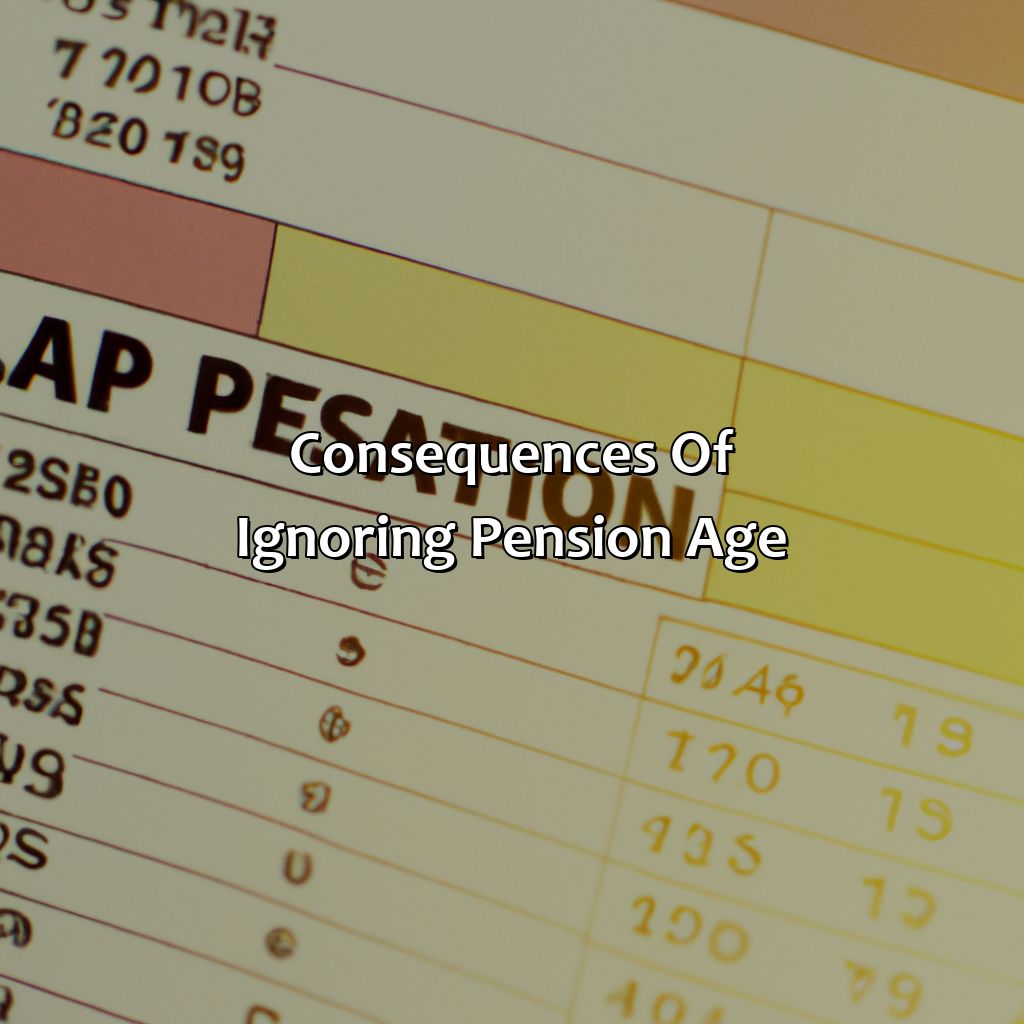
Image credits: retiregenz.com by David Arnold
Financial Struggles in Retirement
As you approach the end of your working life, it is essential to consider the financial struggles that may arise in retirement. The amount received as a pension from your employer or government benefit schemes may not be sufficient to cater for all your financial needs.
It is imperative to note that some factors may increase your expenses in retirement. For instance, healthcare costs may soar, requiring you to dig deeper into your pockets. Moreover, inflation also poses a significant threat to retirees’ finances.
To avoid such financial struggles, it is advisable to prepare adequately for retirement at an early stage by saving and investing in viable ventures. You can explore other sources of income in retirement, such as investment properties or consulting gigs.
According to a survey carried out by pension provider Scottish Widows, one in five people retiring this year has no private pension savings in place. That leaves them reliant on the state pension alone, which could fall short of their living costs. Thus, ignoring the importance of planning for retirement exposes individuals to unwanted financial stress during their golden years.
Skipping your pension age might lead to a longer life… of regret and unpaid bills.
Long-term Impact on Health and Well-being
The prolonged ignorance of pension age can result in severe and long-lasting effects on a person’s health and overall well-being. The financial implications can lead to anxiety, which may further cause depression, stress and other mental health issues. This situation can also lead to physical harm, as people may lose access to necessary medical supplies and treatments if they cannot afford them due to the lack of funds.
It is important to remember that the effects of not planning for your retirement do not just impact you. It can put an additional burden on family members or friends who may have to shoulder the responsibilities that come with being financially unprepared for retirement.
Research from the Harvard School of Public Health also found that people who retire early (before 65) have an increased chance of developing cognitive issues later in life.
According to a report by The New York Times, many Americans are ill-prepared for their retirement—a staggering 42% of all Americans do not possess any retirement savings at all. This lack of foresight will inevitably come back to haunt them in their later years when they may need it most.
Five Facts About the Pension Age:
The pension age is the age at which a person becomes eligible to receive pension benefits. (Source: The Balance)
The pension age varies by country and may be influenced by factors such as life expectancy and government budget constraints. (Source: OECD)
In the United States, the full retirement age for Social Security benefits is currently 66, with plans to gradually raise it to 67 for those born in 1960 or later. (Source: Social Security Administration)
In the United Kingdom, the pension age for men and women is currently 66, with plans to increase it to 67 by 2028 and 68 by 2046. (Source: Gov.uk)
The pension age is a controversial topic, with some arguing for its increase to address demographic challenges and others arguing for its preservation as a social safety net. (Source: The New York Times)
FAQs about What Is The Pension Age?
What is the pension age?
The pension age is the age at which a person can begin to receive their state pension benefits.
What is the current pension age in the UK?
The current pension age in the UK is gradually being increased to 68 for both men and women by 2039.
Can I retire before reaching the pension age?
Yes, you can retire before reaching the pension age, but you will not receive your state pension benefits until you reach the designated age.
Can I work after reaching the pension age?
Yes, you can choose to continue working after reaching the pension age and still receive your state pension benefits.
Are there any exceptions to the pension age?
There are some exceptions to the pension age based on certain circumstances such as disability or ill health. These exceptions may allow an earlier or later start to state pension benefits.
How do I check my pension age?
You can check your pension age by visiting the UK government’s website or by contacting the Pension Service.
 Checkout this IRS Loophole
Checkout this IRS Loophole 
